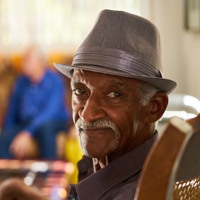Live 24/7 Call Answering: 609-881-1400

The Centers for Disease Control and Prevention (CDC) defines elder abuse as “any abuse and neglect of persons age 60 and older by a caregiver or another person in a relationship involving an expectation of trust.” Studies indicate prevalence rates of nursing home abuse and neglect may be as high as 55 percent. In one study conducted by the National Center on Elder Abuse, 95 percent of patients who were surveyed had witnessed others being neglected or been neglected themselves. Surprisingly, more than 50 percent of nursing home staff surveyed for the study admitted to elder abuse.
Currently, more than three million people in the U.S. are living in nursing homes. Elder abuse in nursing homes can take many different forms, but some factors point to an increased risk for nursing home abuse. Anyone who knows someone in a nursing home should be aware of these risk factors so that they can be vigilant in protecting their loved one.
Health conditions such as Alzheimer’s and other degenerative cognitive diseases that require a move to a long-term care facility are often the very same factors that allow these patients to be abused. Some are simply unable to express themselves to expose the abuse and others simply do not remember from day to day what is happening. This at times causes frustration, which in turn may cause some patients to become aggressive, resulting in further maltreatment by staff.
Facility-related factors – Not surprisingly, a poorly run facility has a much greater risk of elder abuse. Thorough background checks when hiring staff, clearly outlined protocols for care, and adequate supervision are all crucial for preventing abuse. An understaffed facility usually means less supervision and therefore little chance of abusers being found out.
Caregiver factors – Caregivers are often underpaid and overworked. The stress can lead to health problems such as those caused by substance abuse, or mental health issues like depression. Long days and nights caring for elders can cause burn out. A caregiver who is dealing with one or more of these issues may be more likely to abuse the person they are supposed to be caring for.
Inadequate training is another factor. Staff should be trained to provide care for all residents, including those with difficult cognitive issues. They should also be trained to recognize the signs of elder abuse so that they can advocate on behalf of patients who may not be able to speak for themselves.
When home care is no longer possible for a family member, you should be able to trust that they are receiving good care in the facility you have chosen for them. If someone you love has been a victim of nursing home abuse, we can help you obtain justice, accountability, and answers. Contactus online or call Davis & Brusca, LLC at 609-786-2540 to speak to an experienced nursing home lawyer in New Jersey about your legal options. From our conveniently located office in Princeton, we represent abuse victims and their families throughout the state.